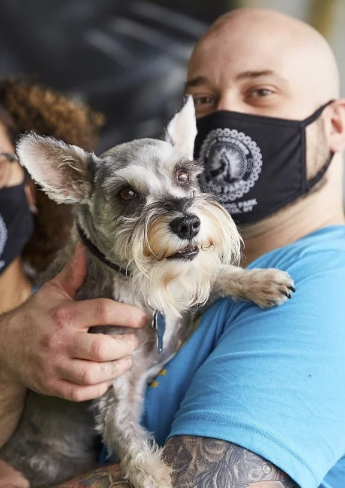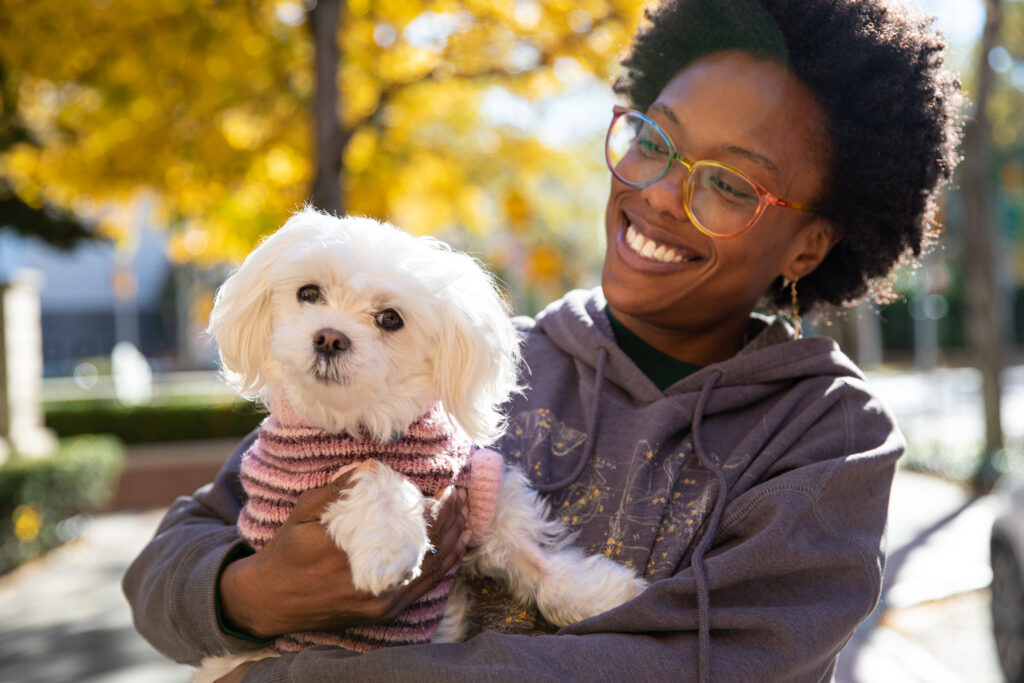
It’s tempting to show our love to the family dog or cat by sharing our table scraps. After all, we want our pets to have the best—they deserve it!
There’s no harm in wanting to bring joy to our pets and to show our affection for them, but there can be risks in sharing certain types of foods with Fido.
When sharing food with your furry friend, first consider the portion size. According to the American Society for the Prevention of Cruelty to Animals (ASPCA), pets should get most of their nutrition from their regular diet, with snacks making up no more than five percent of daily caloric intake.
So, think small: too much of any food your dog or cat isn’t used to can lead to intestinal discomfort. Also, human foods tend to be high in fat and sugar, which, the ASPCA says, can lead to inflammation of the pancreas, requiring hospitalization.
When introducing human foods to the family pet for the first time, there may be some concern over potential food allergies. In reality, food allergies in pets aren’t as common as we may think, according to Dr. Jerry Klein, Chief Veterinary Officer for the American Kennel Club. If a dog or cat has a food allergy, though, it will present with frequent scratching, inflamed skin, ear infections, facial swelling, and/or gastrointestinal distress.
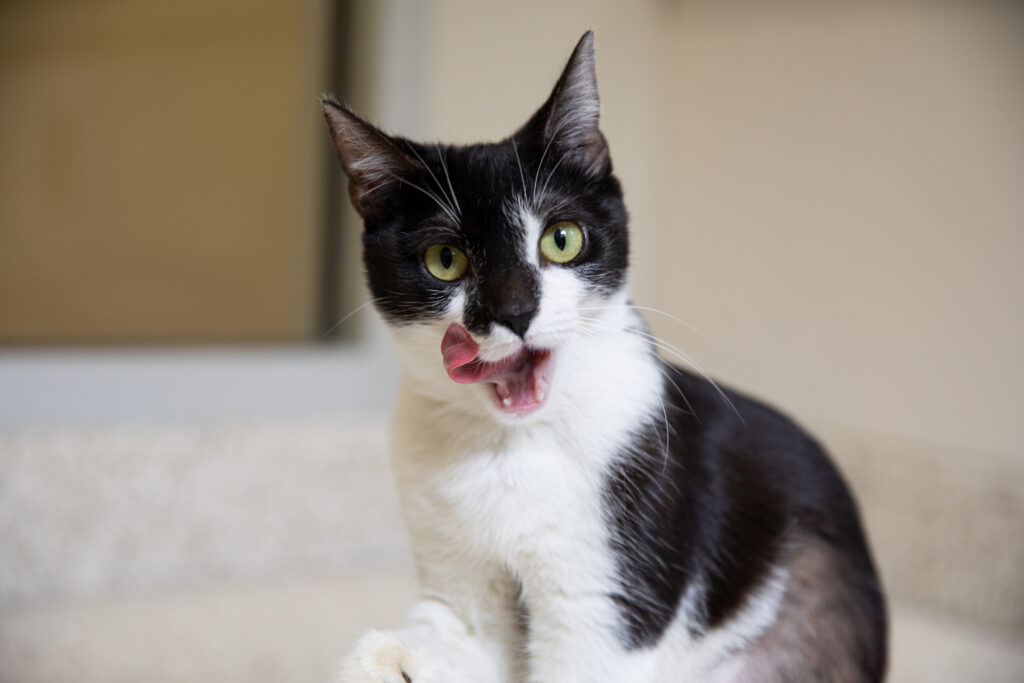
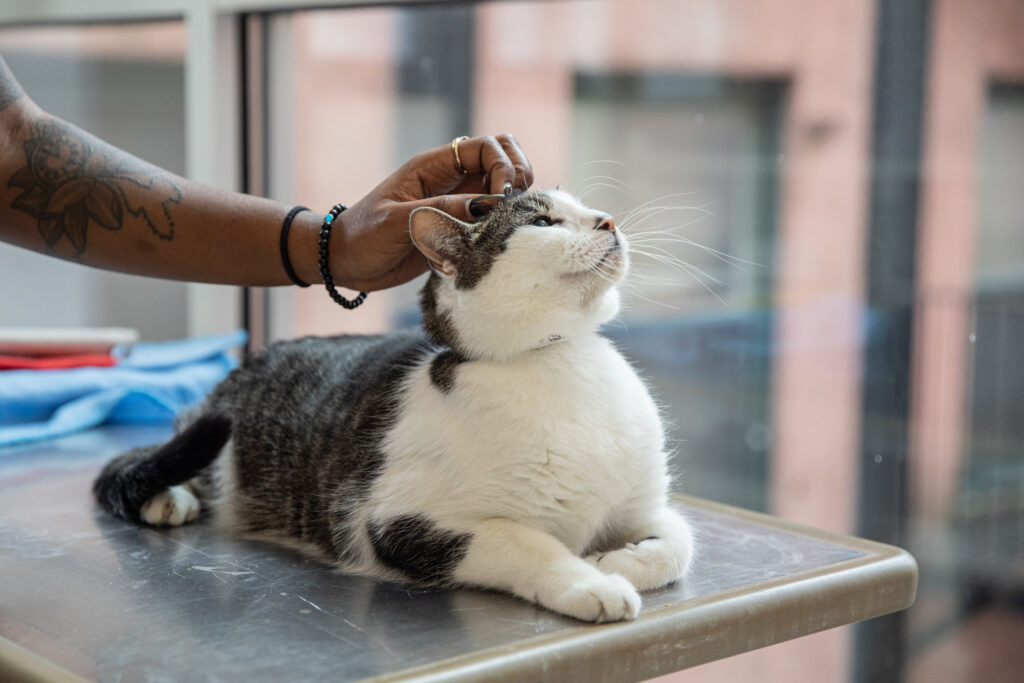
Safe treats
So, what are some safe foods we can share with our pets?
In general, vegetables are a low-calorie, low-fat, and safe option for dogs and cats when served plain and chopped into bite-sized pieces. They can be offered raw (except for pumpkin) or cooked, but do not cook with butter, oil, or seasoning. Try celery, green beans, carrots, or cooked, canned pumpkin the next time your pet is begging at the table.
Most fruits can also be fed to pets, but be aware of seeds, cores, stems, and rinds, which can cause gastrointestinal issues or blockages. Apples, bananas, cucumbers, pineapple, cantaloupe, and blueberries are all safe options, according to the ASPCA. The organization even recommends adding some cucumber to your pet’s water or making a smoothie with fruits as a summer treat.
Eggs are safe snacking for dogs and cats and can be an excellent source of protein. Be sure to cook the eggs thoroughly and, again, do not cook with butter, oil, or seasonings.
For another great source of protein for your dog or cat, serve peanut butter. As many pet lovers may already know, peanut butter can be an effective vehicle for hiding medication as well. Because it is a high-fat food, be mindful of portion size.
“Peanut butter contains heart-healthy fats, vitamins B and E, and niacin. Make sure the peanut butter contains no xylitol, an artificial sweetener,” warns Dr. Klein. The sugar substitute can be toxic to both dogs and cats.
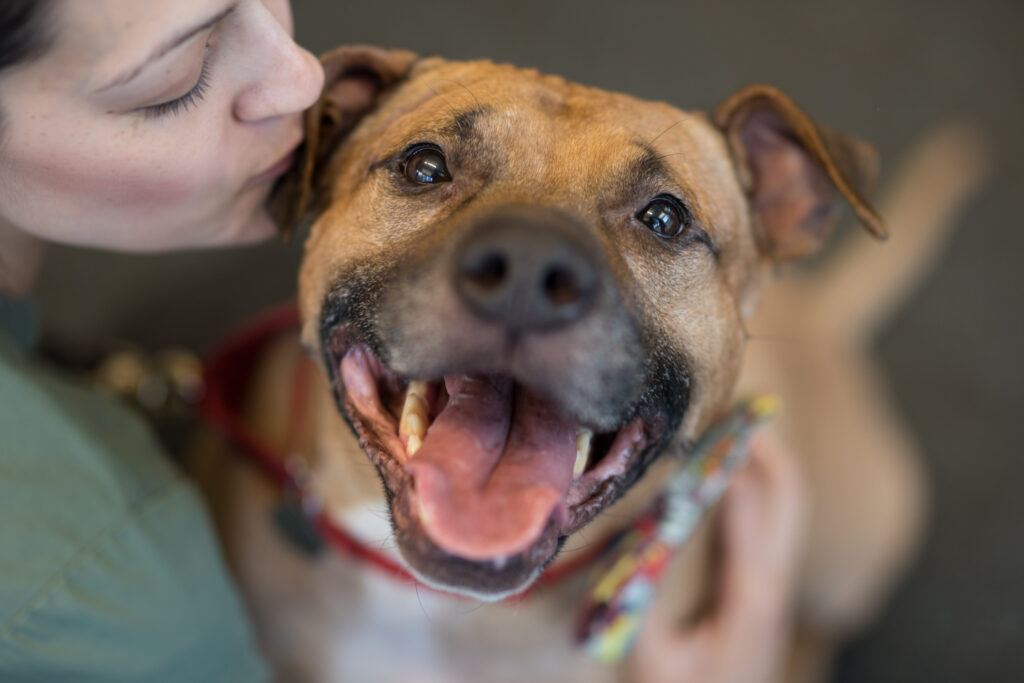
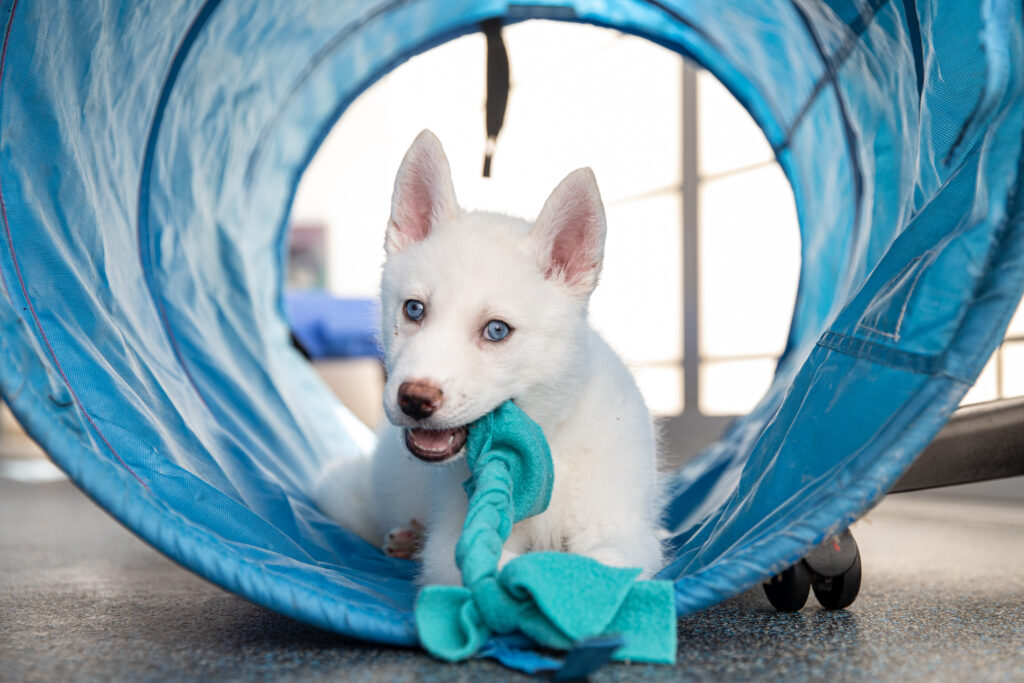
Toxic human foods
While it was acknowledged earlier in this article that most fruits are fair game for your pets, it’s important to call out the danger in feeding them grapes and raisins. These treats contain a toxic substance that can lead to kidney failure.
Also, as previously discussed in this article, be sure to offer cooked foods prepared as plain as possible. No butter, oil, fat, or seasonings. Garlic, onions, and chives can cause intestinal distress and lead to anemia in both dogs and cats, although cats are more susceptible to the dangers of these foods.
You’ll also want to avoid the three C’s: chocolate, coffee, and caffeine. These products contain methylxanthines, and when ingested by pets, they can cause vomiting and diarrhea, abnormal heart rhythm, seizures, and can even lead to death. In regard to chocolate, baking chocolate is the most lethal, followed by dark chocolate, milk chocolate, and then white chocolate.
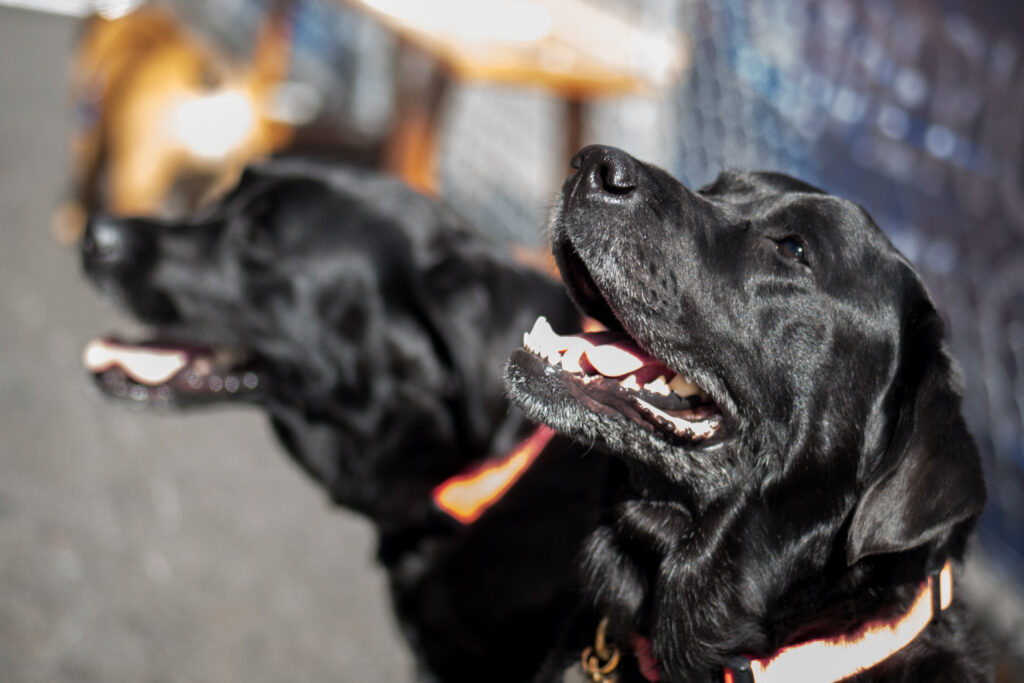
And there is never a situation where alcohol should be shared with your pet. Ingesting alcohol can lead to vomiting, diarrhea, central nervous system depression, difficulty breathing, tremors, coma, and even death, according to the ASPCA.
Lastly, all nuts are to be avoided due to high amounts of oil and fat, but there is one nut that Dr. Klein advises dog owners avoid sharing at all costs. “Macadamia nuts should never be given to dogs, as is it one of the most poisonous foods for them,” he explains. “The nuts can cause vomiting, increased temperature, inability to walk, and lethargy.”
In short, be mindful of what human foods you’re sharing with your pets, as well as the quantity you’re providing them. Knowledge is power, and in the case, can save a furry life.
If you believe your pet has ingested a toxic substance, note the amount ingested and call your vet or the or the ASPCA Animal Poison Control Center at (888) 426-4435.
Views: 7






